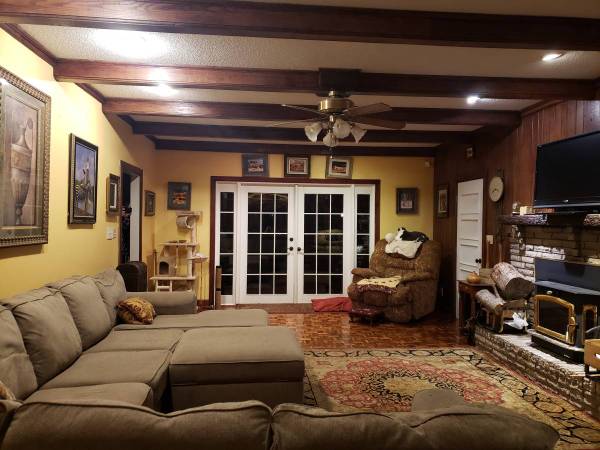Hey there, future off-campus dweller! Ready for independent living? Let's dive into finding affordable housing. It might seem daunting to navigate listings, neighborhoods, and budgets, but fear not! In this guide, we'll walk you through scoring the perfect pad without emptying the vault.
1. Understanding Your Budget
Setting a realistic budget ensures financial stability and helps you make informed decisions about your living arrangements. Here's why understanding your budget is important for off-campus housing:

- Financial Stability: Knowing your budget allows you to assess how much you can afford to spend on housing while still meeting other financial obligations. It helps prevent overspending, accumulating debt, or facing financial strain.
- Prioritizing Expenses: By understanding your budget, you can allocate funds to different aspects of off-campus living, such as rent, utilities, groceries, transportation, and leisure activities. It enables you to prioritize expenses based on your needs and financial capacity.
- Avoiding Surprises: A realistic budget helps you anticipate and plan for unexpected expenses like repairs, medical bills, or emergencies. It provides a cushion to handle unforeseen circumstances without compromising your housing stability.
To calculate a budget for off-campus housing, consider the following factors:
- Rent: Determine how much you can comfortably spend on rent without exceeding 30% of your monthly income.
- Utilities: Estimate costs for electricity, water, internet, and other utilities based on your location and usage.
- Living Expenses: Consider groceries, transportation, insurance, and other necessary expenses when calculating your budget.
To manage your budget effectively, consider using tools and resources such as:

- Budgeting Apps: Utilize mobile apps like Mint, YNAB (You Need a Budget), or PocketGuard to track your expenses, set financial goals, and receive notifications when you're approaching your spending limits.
- Spreadsheets: Create a budgeting spreadsheet using software like Microsoft Excel or Google Sheets to monitor your income, expenses, and savings.
- University Resources: Many universities offer financial counseling services or workshops on budgeting and money management. Take advantage of these resources to gain valuable insights and guidance.
2. Researching Potential Neighborhoods
Prioritizing safety contributes to your well-being, so look for neighborhoods with low crime rates and a sense of security. Living close to campus reduces commuting time and expenses, while also providing easy access to academic resources and campus activities.
To research neighborhoods effectively, utilize online resources like AllInfoHome, Rent.com, or Apartments.com to explore different areas and read reviews. Join student forums or social media groups to gather insights from fellow students about various neighborhoods. Seek assistance from your university's housing department or office of off-campus housing for guidance.
When visiting potential neighborhoods, walk or drive around to get a feel for the area's atmosphere and proximity to essential services. Engage in conversations with residents to gain insights into the community and any concerns they may have.
3. Exploring Housing Options

Choosing the right neighborhood for off-campus housing is crucial due to its impact on affordability, safety, and proximity to campus. It ensures that housing costs fit within your budget, allowing you to cover other expenses comfortably. Prioritizing safety contributes to your well-being, so look for neighborhoods with low crime rates and a sense of security. Living close to campus reduces commuting time and expenses, while also providing easy access to academic resources and campus activities.
When it comes to housing options for students, there are several types to consider. Here is a detailed list of different housing options available:
- Apartments: Apartments are individual units within a larger building. They offer privacy, and independence, and often come with amenities such as laundry facilities, gyms, or parking. However, they tend to be more expensive than other options.
- Shared Houses or Townhouses: Shared houses or townhouses involve renting a portion of a larger house with other roommates. This option allows for cost-sharing, making it more affordable. However, it may require coordination and compromise with housemates. Shared houses may have fewer amenities compared to apartments.
- Renting a Room: Renting a room within a larger house or apartment is a budget-friendly option. It provides a sense of community and social opportunities, but it may involve less privacy compared to other options. Common areas like the kitchen and living room are usually shared with other tenants.
- Student Housing: Some universities offer on-campus housing specifically designed for students. These options can range from dormitories to apartment-style residences. They often provide convenient access to campus facilities and a built-in community of fellow students.
- Boarding Houses or Rooming Houses: Boarding houses or rooming houses are properties where multiple tenants rent individual rooms while sharing common areas like bathrooms and kitchens. These options are typically more affordable but may have limited amenities.
4. Utilizing Student Resources
To research neighborhoods effectively, utilize online resources like Rent.com or Apartments.com to explore different areas and read reviews. Join student forums or social media groups to gather insights from fellow students about various neighborhoods. Seek assistance from your university's housing department or office of off-campus housing for guidance.
5. Negotiating Rental Agreements

Negotiating rental agreements can be a valuable strategy for finding affordable off-campus housing. Here are some tips to help secure the best possible deal:
Research Market Prices
Before negotiating, research the current rental market in the area to understand the average prices for similar properties. This knowledge will provide a solid foundation for your negotiations.
Start with Rent Prices
Discuss the rent price with the landlord or property manager. Politely inquire if there is any flexibility in the price or if they would consider lowering it. Highlight your positive qualities as a tenant, such as good credit or a stable income, to strengthen your negotiation position.
Discuss Lease Terms
Negotiate lease terms that work in your favor. For instance, ask for a shorter lease term or the option to renew at the same rate. Propose a trial period to assess the suitability of the rental before committing to a long-term lease.
Inquire About Discounts
Ask if there are any available discounts, such as reduced rent for long-term leases, early payment incentives, or waived fees. Landlords may be open to negotiations if it means securing a reliable tenant.
Thoroughly Review the Lease Agreement
Before signing any documents, carefully read and understand the lease agreement. Pay attention to clauses regarding rent increases, maintenance responsibilities, and termination policies. Seek clarification or request modifications if needed. By engaging in respectful and informed negotiations, you can increase your chances of securing a more affordable rental agreement.
However, always be prepared for the possibility that negotiations may not result in significant changes. Remember, reviewing the lease agreement thoroughly and asking questions will help avoid any surprises and ensure you have a clear understanding of the terms before committing.
Conclusion
As you venture forth, keep in mind the importance of setting a realistic budget, researching neighborhoods, exploring housing options, and utilizing student resources. Negotiating rental agreements and finding compatible roommates are also key steps in securing the perfect pad while staying within your budget.
Above all, don't forget to enjoy the process! Finding your off-campus home can be an exciting adventure filled with new experiences and opportunities for growth. So, take a deep breath, grab your favorite beverage, and dive into this next chapter of your student life with enthusiasm.
Additional Tips

- Stay Flexible: Flexibility can be your best friend when searching for affordable housing. Keep an open mind about different neighborhoods, housing types, and roommate arrangements to maximize your options.
- Start Early: The early bird catches the worm, they say—and the same applies to housing. Start your search well in advance to avoid last-minute stress and increase your chances of finding the perfect place.
- Seek Guidance: Don't hesitate to reach out to university housing offices, student advisors, or experienced renters for guidance and support throughout your housing search journey.
- Read Reviews: Before committing to a rental property, take the time to read reviews from previous tenants. Their insights can provide valuable information about the landlord, property management, and living conditions.
- Negotiate Wisely: When discussing rental agreements, approach negotiations with confidence and clarity. Be prepared to advocate for yourself while maintaining a respectful and cooperative attitude.
- Plan for Hidden Costs: Remember to budget for hidden costs such as utilities, maintenance fees, and potential emergencies. Having a financial buffer will help you navigate unexpected expenses without breaking the bank.
- Trust Your Instincts: If something doesn't feel right during your housing search, trust your instincts. Your intuition can often guide you toward the best decision for your needs and preferences.





